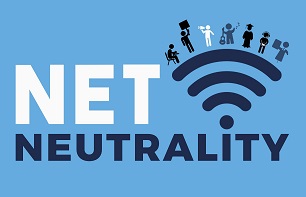The “Overlooked” Initiative: Lessons in Empathy from the New York Times
Gretchen Jennings explores a recent New York Times special Sunday supplement containing the photographs and beautifully written obituaries of some 15 accomplished women who lived and died in the 19th and 20th centuries. Museums can learn from the “Overlooked” project.

Invisible Insights for the British Museum: learning from TripAdvisor reviews
More and more visitors and tourists are turning to online review sites like TripAdvisor, both to plan their itineraries and to leave feedback on their experiences. How can we use this data to understand what visitors think, feel, and learn from our sites? The British Museum is tapping into these online conversations to understand what makes a great experience at their site and how they can best reach a diverse international audience.
Colonial Days and the Erasure of American Slavery
The historical narrative that “bad things happened and continue to happen” should be taught in social studies as early as 1st grade or even Kindergarten. We are not protecting students when we romanticize U.S. history. We are only setting them up to become “color blind” adults who pretend to live in a post racial society.
History Relevance in Action: A Conversation with author Tim Grove
Bob Beatty interviews Tim Grove, one of the founders of History Relevance (formerly the History Relevance Campaign), an author, the chair of the 2018 AASLH annual meeting, and a fellow history professional who proudly carries the “History Geek” moniker.
Strategic Reserves and Endowments: Guidance for Forward-Thinking Funders and Grantees
For many nonprofit leaders, the promise of an endowment is alluring. But for most organizations, an endowment is an unreachable illusion. To make matters worse, those who succeed in building a permanently restricted endowment may be narrowing their organizations’ strategic flexibility by committing them to specifically enumerated deliverables.

Show Me The Money! A Step Toward Solving the Problem of Operating Support
Having spent nearly twenty years in the nonprofit sector, Marc Rand can tell you without a doubt that the field is totally under-capitalized. We all know this! People are underpaid, many facilities were "updated" in the 1970s, and in order to review the financials, you need a bottle of Pepto!
Meeting Teachers Where They Are
School groups are an important visitor base for many institutions, but with limited funds and time, they can also be one of the toughest audiences to get through your doors. Meg Davis, founder of Explorable Places, has some pointers for aligning institutional offerings with curriculum, working out logistics, and supporting teachers and students for the best possible experience.

Net Neutrality Matters to Museums
In future-speak, a "disruptive event" is one that significantly changes the world for good or ill. Evaluating the ripple effects of such events is an important part of strategic foresight. Blaire Moskowitz, PhD Candidate at the School of Museum Studies at the University of Leicester, shares her opinions on the implications for museums of the recent repeal of regulations that protected net neutrality.
Social Media Do's and Don't During Election Season
Typically, questions arise when someone posts something electoral on a nonprofit’s social media channels and when trying to navigate liking or following electoral social media.
